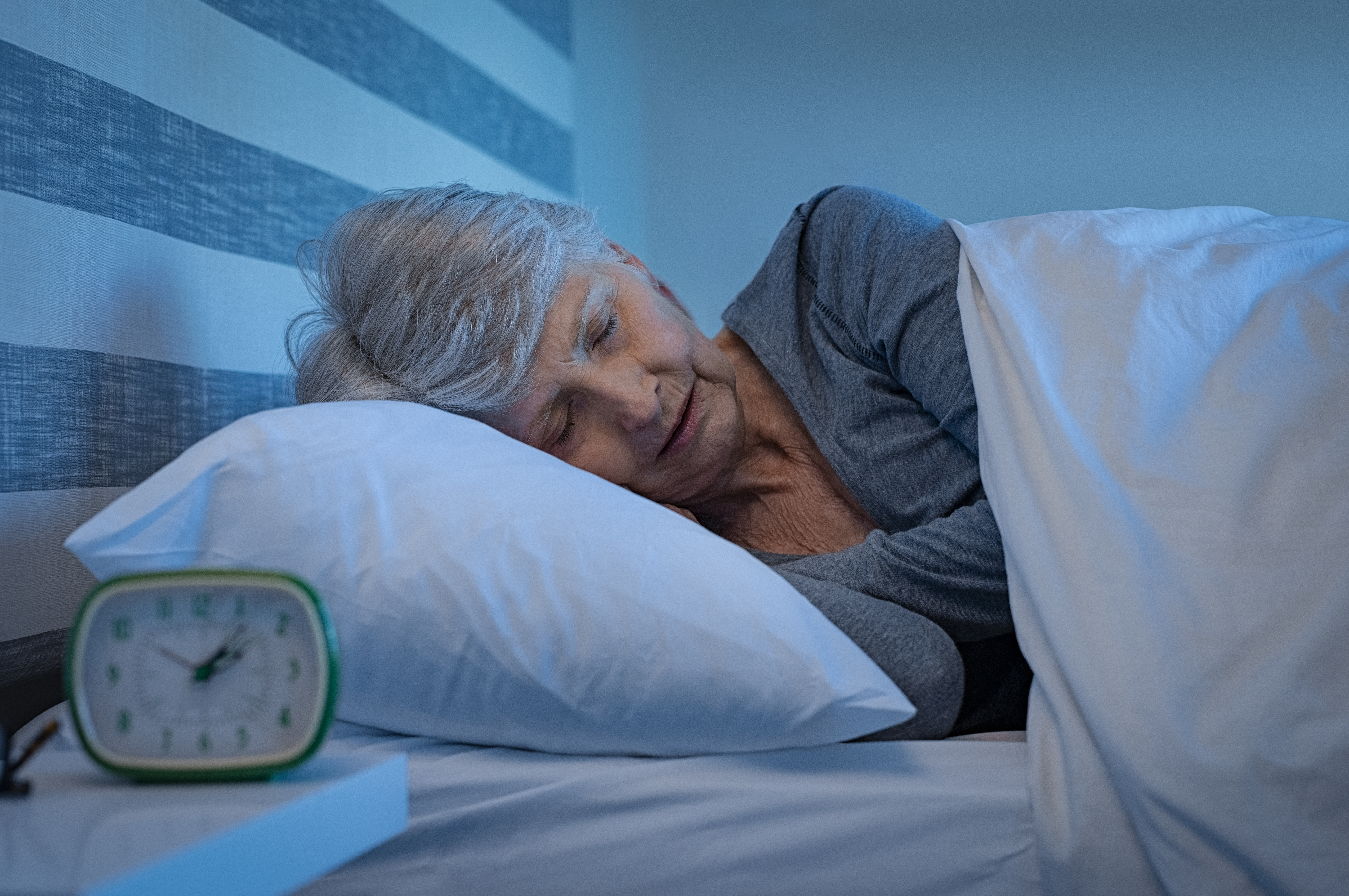- HOME
- SERVICES
- WHERE TO BEGIN
- LOCATIONS
- RESOURCES
- HEALTH PLAN SERVICES
- CAREERS
- EMPLOYEES

Tips for a Better Night’s Sleep
Are you getting enough sleep at night? Do you have problems falling asleep or staying asleep? For many of us, that answer is no. Typically an adults need 7-8 hours of sleep each night to stay in good mental and physical health, promote quality of life, and avoid an increased risk of injury.
So how can I get a better night’s sleep?
Tip 1: Keep in sync with your body’s natural sleep-wake cycle
Getting in sync with your body’s natural sleep-wake cycle, or circadian rhythm, is one of the most important strategies for sleeping better. If you keep a regular sleep-wake schedule, you’ll feel much more refreshed and energized than if you sleep the same number of hours at different times, even if you only alter your sleep schedule by an hour or two.
Try to go to sleep and get up at the same time every day. This helps set your body’s internal clock and optimize the quality of your sleep. If you’re getting enough sleep, you should wake up naturally without an alarm. If you need an alarm clock, you may need an earlier bedtime.
Avoid sleeping in—even on weekends. The more your weekend/weekday sleep schedules differ, the worse the jetlag-like symptoms you’ll experience.
Be smart about napping. While napping is a good way to make up for lost sleep, if you have trouble falling asleep or staying asleep at night, napping can make things worse. Limit naps to 15 to 20 minutes in the early afternoon.
Start the day with a healthy breakfast. Among lots of other health benefits, eating a balanced breakfast can help sync up your biological clock by letting your body know that it’s time to wake up and get going. Skipping breakfast on the other hand, can delay your blood sugar rhythms, lower your energy, and increase your stress, factors that may disrupt sleep.
Tip 2: Control your exposure to light
Melatonin is a naturally occurring hormone controlled by light exposure that helps regulate your sleep-wake cycle. Your brain secretes more melatonin when it’s dark—making you sleepy—and less when it’s light—making you more alert. Here’s how to influence your exposure to light:
During the day
Expose yourself to bright sunlight in the morning. The closer to the time you get up, the better. Have your coffee outside, for example, or eat breakfast by a sunny window. The light on your face will help you wake up
Spend more time outside during daylight. Take your work breaks outside in sunlight, exercise outside, or walk your dog during the day instead of at night.
Let as much natural light into your home or workspace as possible. Keep curtains and blinds open during the day, and try to move your desk closer to the window.
At night
Avoid bright screens within 1-2 hours of your bedtime. The blue light emitted by your phone, tablet, computer, or TV is especially disruptive. Watching TV or scrolling through social media can be stimulating (or aggravating) rather than relaxing. Try listening to music or audio books instead.
When it’s time to sleep, make sure the room is dark. Use heavy curtains or shades to block light from windows, or try a sleep mask. Also consider covering up electronics that emit light.
Keep the lights down if you get up during the night. If you need some light to move around safely, try installing a dim nightlight in the hall or bathroom or using a small flashlight. This will make it easier for you to fall back to sleep.
Tip 3: Improve your sleep environment
A peaceful bedtime routine sends a powerful signal to your brain that it’s time to wind down and let go of the day’s stresses.
Keep your room dark, cool, and quiet
Keep noise down. If you can’t avoid or eliminate noise from neighbors, traffic, or other people in your household, try masking it with a fan or sound machine. Earplugs may also help.
Keep your room cool. Most people sleep best in a slightly cool room (around 65° F) with adequate ventilation. A bedroom that is too hot or too cold can interfere with quality sleep.
Make sure your bed is comfortable. Your bed covers should leave you enough room to stretch and turn comfortably without becoming tangled. If you often wake up with a sore back or an aching neck, you may need to experiment with different levels of mattress firmness, foam toppers, and pillows that provide more or less support.
Reserve your bed for sleeping and sex. By not working, watching TV, or using your phone, tablet, or computer in bed, your brain will associate the bedroom with just sleep and sex, which makes it easier to wind down at night.
Some more tips:
- Stay away from caffeine and alcohol late in the day.
- Avoid nicotine completely.
- Get regular exercise, but not within 2-3 hours of bedtime.
- Follow a routine to help you relax before sleep (for example, reading or listening to music). Turn off the TV and other screens at least an hour before bedtime.
- Don’t lie in bed awake. If you can’t fall asleep after 20 minutes, do something calming until you feel sleepy, like reading or listening to soft music.
- Talk with a doctor if you continue to have trouble sleeping
For more information contact:
Premier Home Health Care Services, Inc.
Website: www.premierhomehealthcare.com
